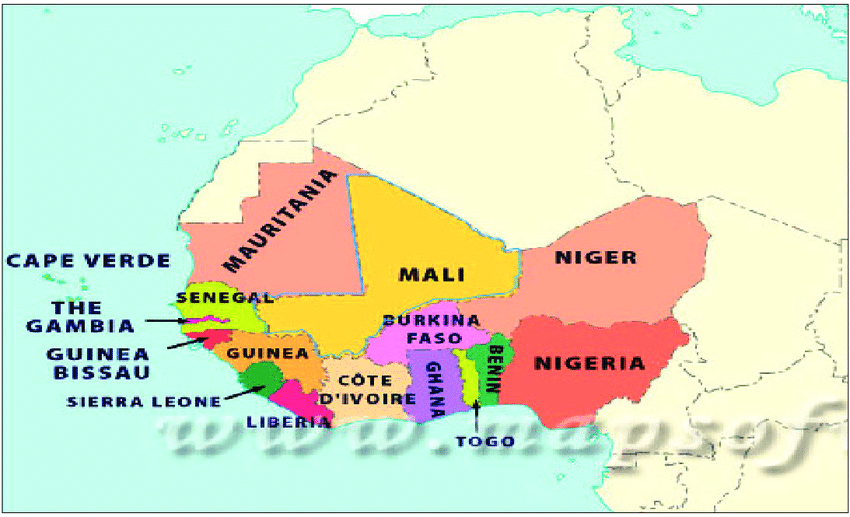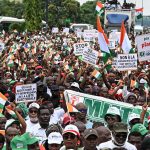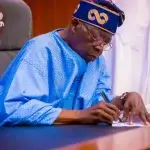
When ‘Democracy’ Selectively Sanctions Coups But Turns A Blind Eye To Africa’s Sit-tight dictators

As Western governments swiftly denounce military coups in the Sahel region, they remain largely silent regarding longstanding African leaders who have kept power for decades by rewriting constitutions, suppressing dissent, or marginalising opposition. This selective approach raises questions about the consistency of democracy promotion and values-based foreign policy.
Across Africa, several presidents have remained in power far beyond their constitutional mandates, often by rewriting the rules of succession and disempowering opposition. Among those most frequently cited are:
Cameroon – Paul Biya
Since 1982, President Paul Biya has held power in Cameroon. Term limits were formally abolished in 2008, a move that has allowed Biya, now 91, to continue governing despite widespread criticism over political repression and economic mismanagement.
Equatorial Guinea – Teodoro Obiang Nguema Mbasogo
In office since 1979, Obiang seized power in a coup against his uncle and has since eliminated term restrictions. His prolonged rule is marked by severe human rights abuses and widespread corruption, yet he remains unchallenged, mainly on the international stage.
Republic of Congo – Denis Sassou Nguesso
Sassou Nguesso has maintained control through two distinct periods, first from 1979 to 1992, and again from 1997 to the present. A 2015 referendum scrapped constitutional limits, legitimising his continued hold on power.
Uganda – Yoweri Museveni
President Museveni has ruled Uganda since 1986. Legislative changes in 2005 eliminated presidential term limits, and further amendments in 2017 removed the age limit, allowing him to contest elections indefinitely, despite recurring allegations of electoral manipulation and political repression.
Eritrea – Isaias Afwerki
Since Eritrea gained independence in 1993, Isaias Afwerki has maintained an unchallenged grip on power in a state that features no multi‑party elections. The government’s oppressive policies and lack of transparency have drawn international condemnation, yet Afwerki remains insulated from external pressure.
Djibouti – Ismaïl Omar Guelleh
Guelleh, who ascended to power in 1999, has overseen a series of constitutional amendments since 2010 that have effectively allowed him to extend his tenure indefinitely. Opposition voices in Djibouti have been routinely silenced amid accusations of electoral fraud.
Rwanda – Paul Kagame
Since 2000, Rwanda’s President Kagame has consolidated power with a track record of both economic achievements and an increasingly authoritarian turn. A 2015 constitutional referendum reset term limits, potentially enabling him to govern until 2034, despite enduring concerns over human rights violations and political suppression.
Togo – Faure GnassingbéFollowing his father’s nearly four-decade-long rule, Faure Gnassingbé seized power in 2005. Constitutional revisions in 2019 effectively nullified any term restrictions, cementing his place as Togo’s long-serving leader in an era marked by protests and calls for democratic reforms. In 2024, Gnassingbé oversaw the shift from a presidential system of government to a parliamentary system, which eliminated direct elections, and the parliament now elects the president. With Gnassingbé’s party as the majority in parliament, he is set to rule for life.
Comoros – Azali Assoumani
Assoumani, whose tenure has been punctuated by intermittent rule (2002–2006 and since 2016), has seen the nation extend presidential terms and alter the power-sharing agreement between the islands, thereby prolonging his presidency amid controversy.
Central African Republic – Faustin‑Archange Touadera
Rising to power in 2016 amidst civil strife, Touadera recently benefited from a 2023 referendum that scrapped the two‑term limit, setting the stage for a possible fourth term in an election scheduled for later this year.
Côte d’Ivoire – Alassane Ouattara
Although not always listed with the older autocrats, President Ouattara of Côte d’Ivoire has also been a subject of debate following his bid for a fourth term in 2025, which undermined democratic norms. Western allies have provided cautious support, prioritising stability over the strict enforcement of term limits.
Contrast these longstanding civilian autocrats with the recent waves of military coups in the Sahel region, in countries such as Mali, Niger, and Burkina Faso. Following the ouster of civilian leaders, Western governments and regional organisations like ECOWAS have imposed harsh sanctions and issued immediate condemnations. Such rapid condemnations include withdrawal of aid packages, travel bans, and even threats of military intervention.
These coups are often driven by public frustration with endemic corruption, poor governance, and insecurity. But the international community’s swift reaction against military takeover starkly contrasts with its apparent acquiescence toward entrenched presidents who have used legal and extralegal means to perpetuate their rule.
When a president alters the constitution to extend their power for decades, the global community often turns a blind eye. But if a coup unfolds, even one that might reflect the people’s desperation, the West is ready to intervene.
This selective outrage undermines the credibility of Western advocacy for ‘democratic’ governance. This is often rooted in strategic interests. Civilian autocrats in resource-rich or geopolitically significant countries are more likely to maintain friendly relations with the West, despite their record on democratic freedoms and human rights.
While the world reacts with indignation to the short-lived disruptions of military coups, Africa’s most entrenched leaders continue to cling to power with the support of international allies. The glaring double standard calls for a reexamination of democratic promotion policies, one that does not allow strategic interests to compromise the universal values of accountability, transparency, and free elections.
In a future where the voices for change are growing louder, the pressing challenge remains: ensuring that every leader, regardless of how they came to power, is held responsible to the people they govern.
About The Author
Related Articles
Asake Sets New Billboard Afrobeats Record as Chart Presence Grows
Asake has further cemented his place as one of Afrobeats’ most dominant...
ByWest Africa WeeklyJanuary 29, 2026Nigerians Lament PayPal’s Return as Old Wounds Resurface
PayPal’s reentry into Nigeria through a partnership with local fintech company Paga...
ByWest Africa WeeklyJanuary 29, 2026Tanzania Eyes Gold Sales as Aid Declines and Infrastructure Needs Grow
Tanzania is weighing plans to sell part of its gold reserves to...
ByWest Africa WeeklyJanuary 29, 2026Mali Tightens Grip on Explosives Supply With New Majority Stake
The Malian government has taken majority ownership of a civil explosives manufacturing...
ByWest Africa WeeklyJanuary 29, 2026












Leave a comment